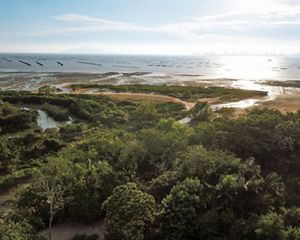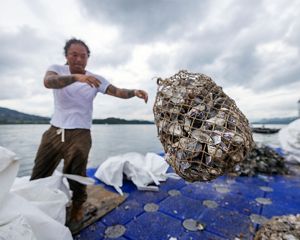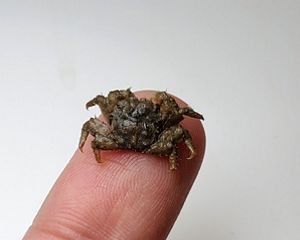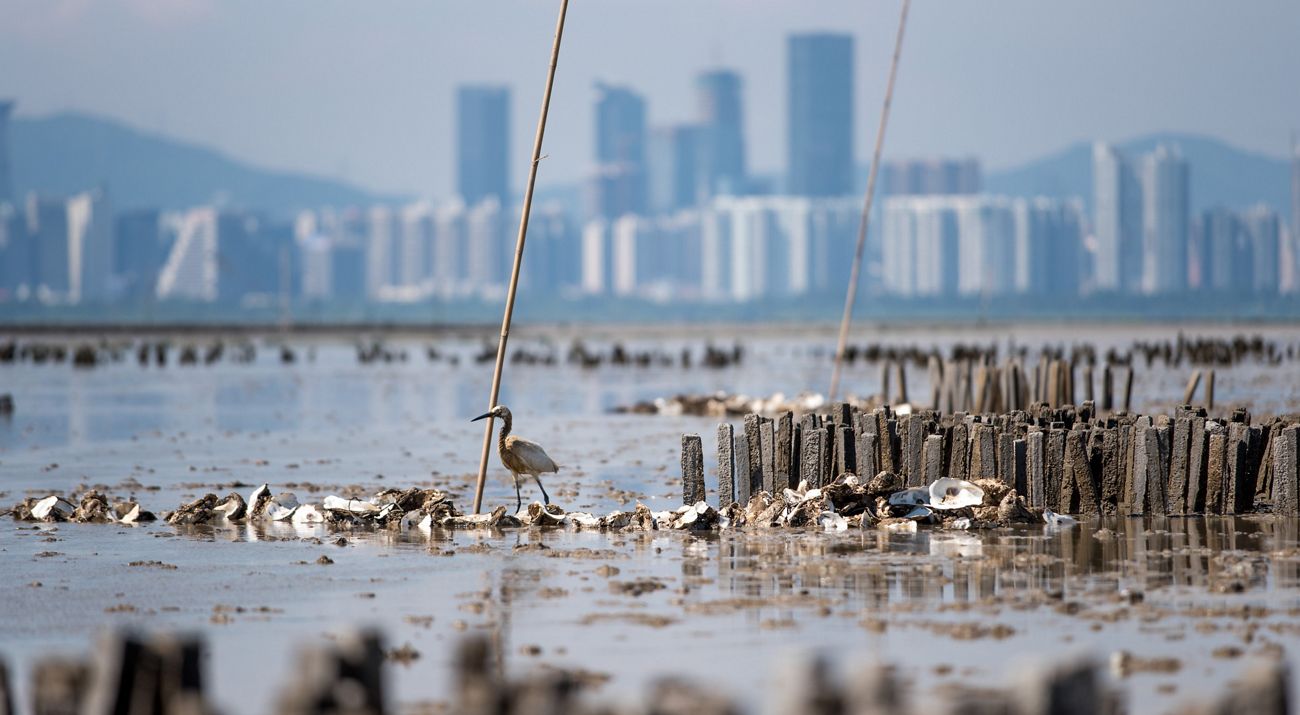
Restoring Hong Kong’s Lost Shellfish Reefs
Oyster farming has over 700 years of history in Hong Kong, but overharvesting and coastal development have destroyed much of the city’s natural reefs.
Support Our Work
Help us to reduce waste and build new reefs for the benefit of people and nature.
DONATE NOWAn Urban Conservation Movement
For more than 700 years, oysters have been an important commodity in Hong Kong—unsurprising given Hong Kong people’s love for seafood. In addition, oysters are also ecosystem engineers that play a tremendous role in coastal protection and support marine ecosystems wherever they thrive.
Oysters and other shellfish provide a boon of benefits, acting as natural filter feeders that improve local water quality and stabilize shorelines. A single oyster can filter 200 liters of water a day, cleaning up murky waters to create healthy environments for seagrass, small fish and other species to thrive.
But decades of commercial dredging for lime, coastal reclamation and over-harvesting have decimated the oyster populations, along with the long list of benefits they provide. Globally, oyster reefs are the most endangered marine habitat on the planet with an estimated 85% loss.
In Hong Kong, The Nature Conservancy (TNC) is leveraging our science, skills and partnerships to bring back the city’s living reefs—and the benefits they provide. Collaborating with the government, academics, community partners and more, we are working to restore Hong Kong's lost shellfish reefs for people and nature in Deep Bay.
Restoring Hong Kong's Reefs
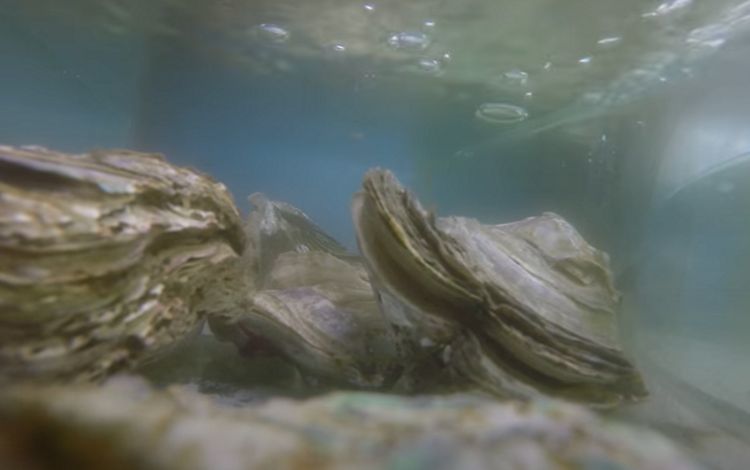
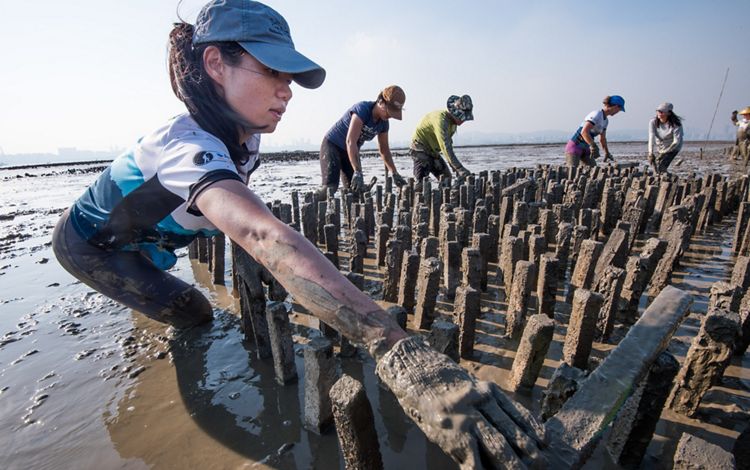
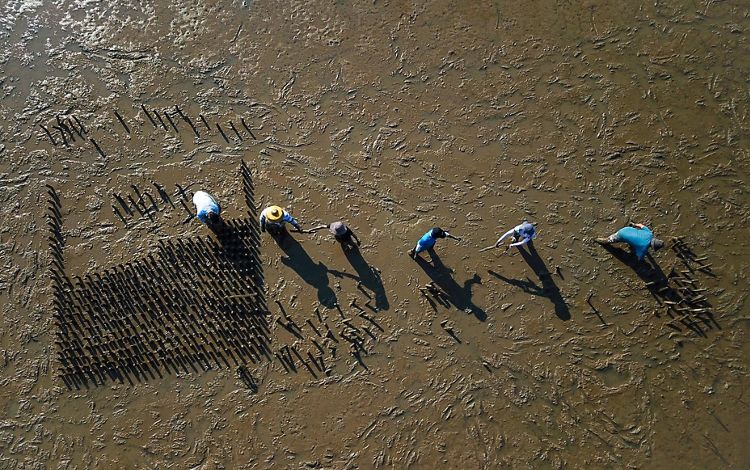
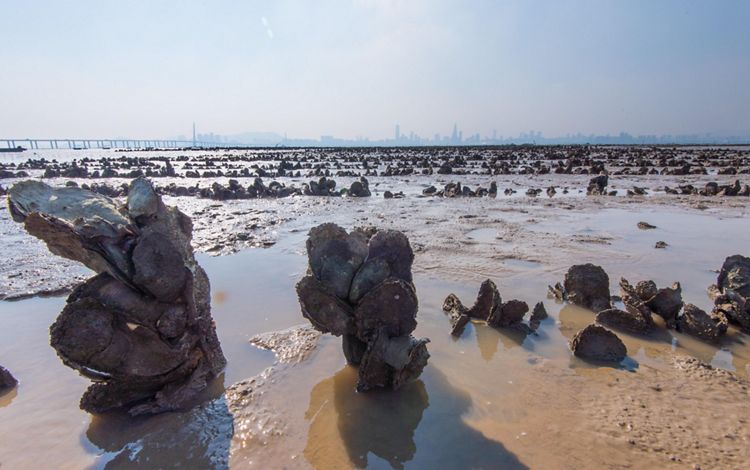
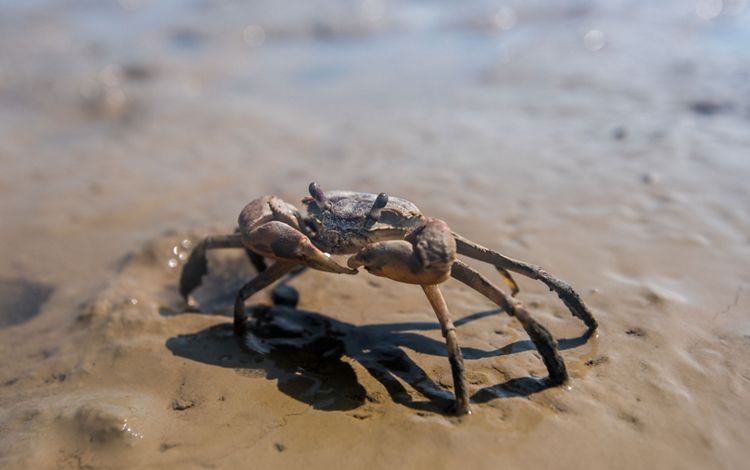
What We Are Doing
With support from J.P. Morgan and in partnership with the Swire Institute of Marine Science (SWIMS) of The University of Hong Kong, and drawing from our expertise in restoring oyster reefs at more than 150 sites around the world, we have embarked on an ambitious effort to understand and quantify oyster reefs’ critical ecological benefits and to restore shellfish reefs in Deep Bay, northwestern Hong Kong.
With support from the Lau Fau Shan and Yung Shue O aquaculture communities, TNC has deployed two pilot oyster reefs in Lau Fau Shan and Tolo Harbour using discarded shells. For the next coming years, we will conduct ongoing monitoring of the reef’s growth and its impact on biodiversity and water quality. These pilots are essential for data collection and restoration method development for future scale-up.
Quote
Globally, oyster reefs are the most endangered marine habitat on the planet with an estimated 85% loss.
Bringing back reefs protects our city's coastlines, cleans water and creates habitat for diverse widlife. Our goal is to use science to find cost-effective solutions that can restore Hong Kong's reefs at scale and inspire similar projects in other coastal areas and megacities across Asia.
